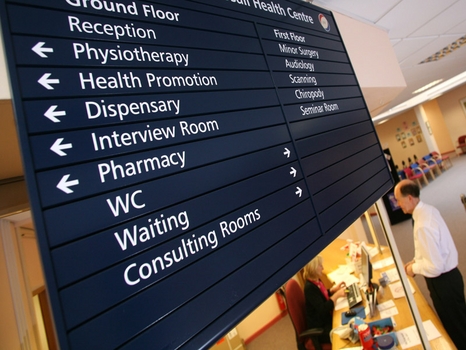GPs say NHS reforms have harmed patient care

Exclusive More than twice as many GPs think that the introduction of CCGs has been detrimental to patient care than think have improved it, a Pulse survey has revealed.
Just over a third (37%) of 592 respondents said care had got worse since the introduction of the Health and Social Care Act – which is an increase on the 32% of GPs who said it had worsened last year – while only 18% said patient care had improved since April 2013.
The survey, which was held in February, also reveals that only a quarter of respondents said that they felt more involved in commissioning decisions since the formation of CCGs than they did under PCTs, with over two-thirds (68%) disagreeing.
The findings strike a blow to the Coalition Government’s reforms, finding that two years on, GPs do not feel the key aims have been achieved.
GP leaders have said that these results show CCG board members that they must ‘face up to pressures facing GP practices’.
But commissioning leaders said that the dissatisfaction had more to do more with a lack of funding in general practice than from CCGs’ actions.
The survey revealed that more GPs felt CCGs had worsened care across the board, including the NHS’s ability to provide care to the most vulnerable, care in the community and variation in treatment.
However, it also found there had been an increase since last year’s survey in the number of GPs who thought patient care had got better, from 13% to 18%.
GPs cited greater rationing of services (such as minor surgery), cuts to crucial community services making it harder to care for patients (such as district nursing) and fragmentation costing more money that could be used for patient care.
Dr Mark McCartney, a GP partner from Cornwall, said that patients were suffering as a result of the changes.
He said: ‘Our politicians and NHS England seem totally detached from the reality of the crisis in the NHS.’
Dr Rachael Kenyon, a GP partner from North Somerset, said the reforms ‘cost a crazy amount of money’.
She added: ‘Projects that PCTs were running and about to implement went by the wayside; these could have significantly improved patient care.’
Related stories
In full: GPs feel the NHS reforms are not working
Special report: The NHS reforms one year on
Co-commissioning: Is your CCG taking over control of GP funding?
Dr Marcus Saunders, a GP partner from Portsmouth, said the biggest issue was the ‘shifting of work from a hospital setting to primary care’ with funding following.
He added: ‘The frequency of change and reorganisation means there is no long term plan or corporate memory and diverts time and resources away from patient care. I’m not sure commissioning has enough clout to change this.’
The GPC said that the results ‘were not a surprise’.
Dr Chaand Nagpaul, chair of the GPC, said: ‘This really is a call to CCG board members to face up to pressures facing GP practices, support GP practices and realise that their commissioning plans have little chance of success unless GPs feel supported and understood.’
However, Dr Mike Dixon, chair of the NHS Alliance, emphasised it was ‘crucial’ there continued to be a link between commissioners and local practices.
But he said the declining perception of patient care was unsurprising given the ‘mismatch’ between GP funding and demand for the findings.
He added: ‘I don’t think it’s to do with the Health and Social Care Act – I think it’s that general practice has lost 25% of its share of NHS funding in the last six or seven years.
‘The incoming government must recognise that we can’t keep on talking about primary care-led NHS and then starve primary care of resources. It’s time for politicians to put their money where their mouth is.’
This comes as NHS England is looking to give CCGs more responsibility fro primary care through ‘co-commissioning’ with NHS England local area teams.
Survey findings
Do you feel more involved in commissioning decisions since the formation of your local CCG, compared with the PCT?
Yes – 26%
No – 68%
Don’t know – 6%
What effect have the NHS reforms and the switch to GP commissioning in April 2013 had on the quality of patient care?
Much better – 2%
Slightly better – 15%
No change – 46%
Slightly worse – 28%
Much worse – 9%
The survey launched on 9 February 2015, collating responses using the SurveyMonkey tool. The 37 questions covered a wide range of GP topics, to avoid selection bias on one issue. The survey was advertised to readers via our website and email newsletter, with a prize draw for a Samsung HD TV as an incentive to complete the survey. Some 592 GPs answered these questions.
Click here for the full survey findings
Portfolio careers
What is the right portfolio career for you?
















